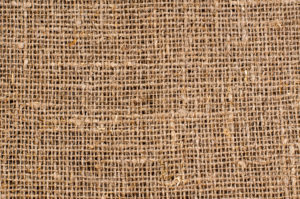When shopping for sheets, you’ve undoubtedly heard of thread count, but what exactly does thread count mean, and how do you know what a good thread count is? Read on to find out what thread count is and how to shop for the best sheets for you.
What Is Thread Count?

First off, you’ll want to know what the meaning thread count is. Thread count refers to the number of horizontal and vertical lines of thread per square inch. In other words, how tightly woven the fabric is. Lower thread counts mean the sheets are not woven as tightly whereas high thread counts are tighter, to fit in more lines per square inch.
Over time, the thread count will loosen or soften, so you’ll want to choose a thread count that leaves a little room for loosening. Most sheets will be offered in a thread count of 200 to 800. Luxury sheets may go up to 1,800.
What Is the Best Thread Count for Sheets?
The market varies widely, but generally, 500 thread count sheets are standard and should be quite comfortable. Sheets with a thread count of 1,000 or more are definitely very soft and comfortable but will come with a heftier price tag. The 500-mark for thread count is a good balance in both quality and price.
High Thread Count Sheets
If your budget allows for it, high thread count sheets are very soft and luxurious. Low thread counts sheets, particularly those below 200, will look see-through when you hold them up to the light. High thread count sheets are so tightly woven, you won’t see through them when you hold them up to the light.
This means they are thicker, plusher, and generally feel softer and comfier. The higher the thread count, the softer the feel. However, it’s important to remember that anything over 1,500 thread count may not necessarily be any better than something of 1,000 thread count. There is only so much that tighter weaving can supply.
Where Do Polyester Sheets Come In?
Thread count is an important factor in selecting the best sheets, but so is material. For example, an 800 thread count set of polyester sheets is nowhere near as soft as 800 thread count cotton sheets. The type of material is another huge deciding factor.
Polyester sheets are synthetic, and while using synthetic materials are fine for decorative items such as curtains and throw cushions, when it comes to something that will be in contact with your body, a breathable, natural fiber is a much better choice. Cotton will soften even more over time. Polyester won’t do the same.
Egyptian Cotton Sheets
Cotton is an excellent material, but what about Egyptian cotton? If you opt for 100% Egyptian cotton sheets, you are definitely investing in better quality material. In fact, you can afford to choose a lower thread count with this luxurious material. A higher thread count is great but not entirely necessary.
How to Shop for the Best Thread Count Sheets
Here are some tips to help you shop for the best thread count at a price you can afford.
- Start by narrowing your search down to natural fiber materials, rather than synthetics.
- Choose a thread count between 500 and 800 for the best quality feel of basic cotton.
- Shop for bargains and sales to get the most bang for your buck.
- Always verify the materials on items priced too well. It may not be 100% good quality natural fibers.
- Keep the receipt. Sometimes you can only really tell how you will like the sheets after you’ve tried them. Many come with a money-back guarantee.
Does Thread Count Really Matter?
In short, yes, thread count matters. But it isn’t necessarily the most important factor. The quality of the materials the sheets are made of is the top priority. A high thread count in a synthetic fabric just won’t be worth the spend for you. Good materials are the key when it comes to selecting sheets that will feel the most comfortable.
Thread count is an important runner up. Start by researching the finest materials and then consider the thread count of your list.
Which Materials Are Best for Sheets?
Here is a list of some of the finest materials to choose from when it comes to bed sheets:
- Egyptian Cotton: Cotton grown in Egypt is grown in a climate that is excellent for cotton growth. Fibers are usually much longer and softer than standard cotton.
- Supima® Cotton: This registered trademark for American cotton is guaranteed to meet specific regulations set by the Supima Association. This material is durable, soft, maintains color well, and is also hypoallergenic and resistant to dust mites.
- Flannel: Made from wool, cotton, and other natural fibers, flannel sheets are guaranteed to keep you warm. They also soften with wear and washing.
- Bamboo: Sheets made from bamboo are great at wicking away sweat. They do not absorb moisture, making them ideal for hot sleepers.
- Linen: Linen sheets are very strong and breathable. They are also more breathable and more absorbent than cotton, but they are more costly to produce.
The Bottom Line
When it comes to purchasing sheets, it comes down to choosing items that are the highest quality you can afford. To make the wisest decision, it’s important to weigh all your options. First, prioritize the material, then the thread count. Together, these key factors determine the comfort level and durability of your sheets.
Look for materials that are natural, breathable, and soft. These are the materials that will also last the longest. Longevity is another key factor to look out for. If the sheets are cheap but they won’t last long, it isn’t the best choice.
Instead, take your time and hold out for a bargain sale! You should never compromise quality if you want to get a good night’s sleep. Instead, make a checklist and be ready to shop around until you find the set of sheets that fits your wish list and your budget.


